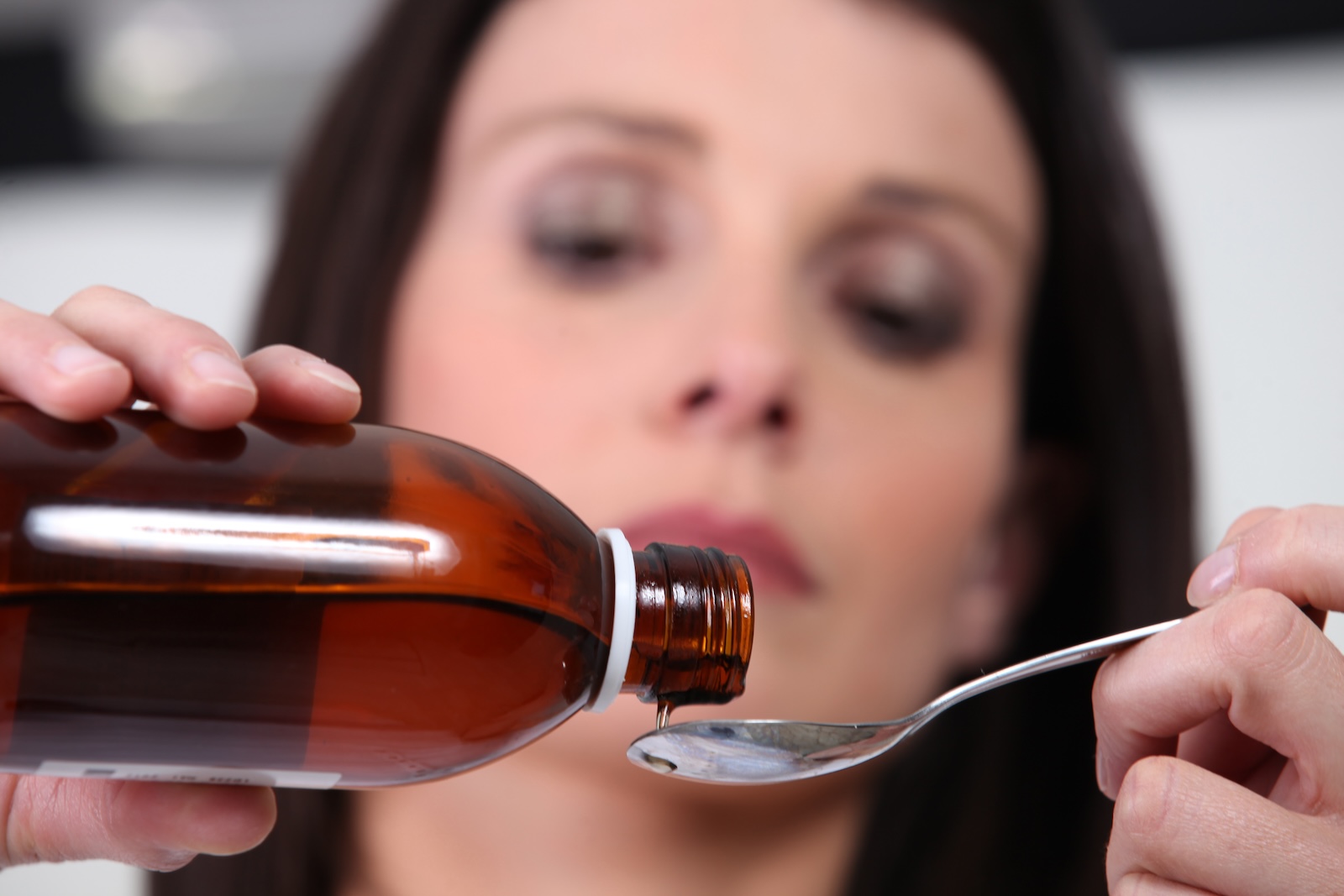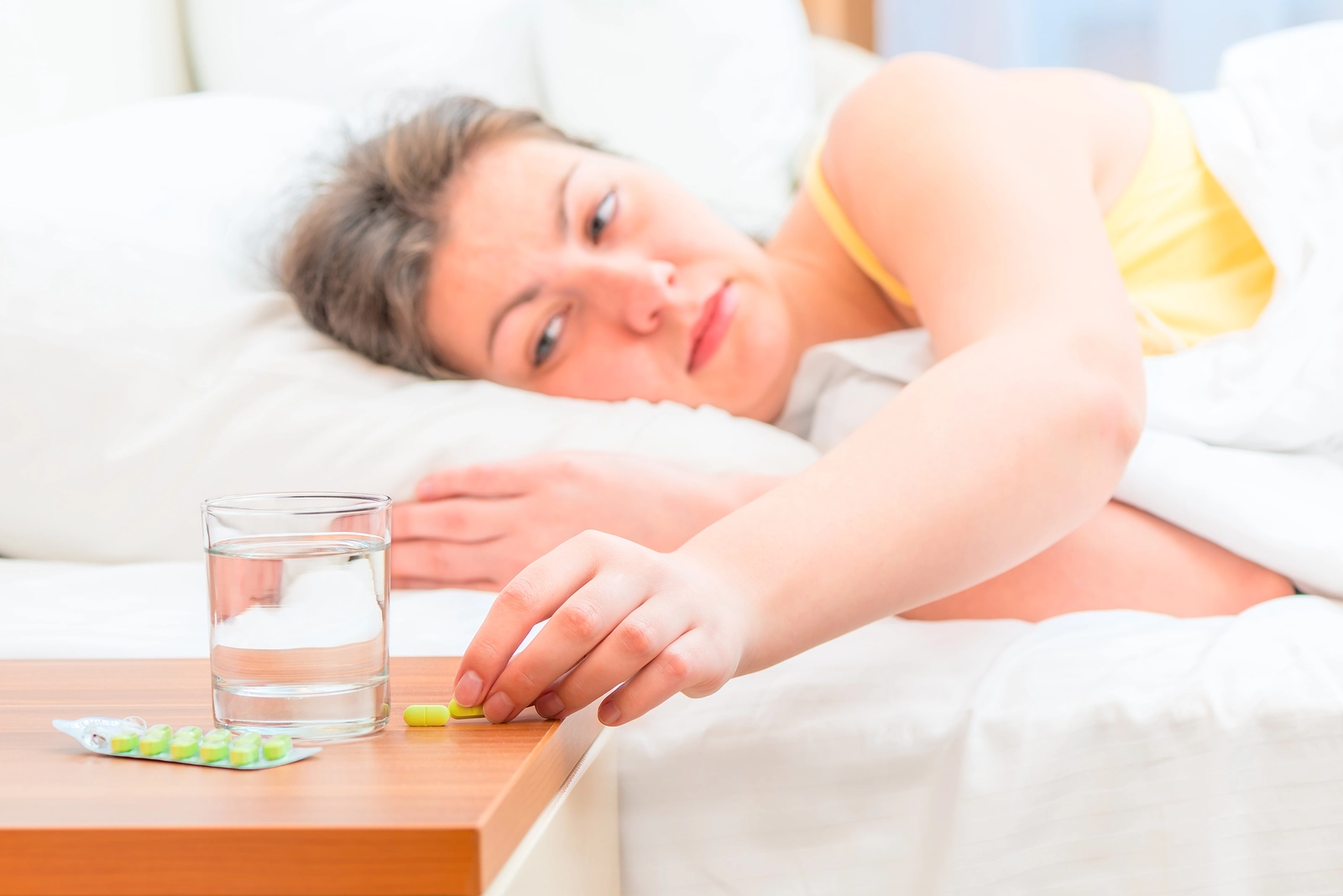
Does Nyquil Make You Sleepy?
Key Points
- Nyquil contains acetaminophen, dextromethorphan, and doxylamine succinate, causing drowsiness by blocking histamine receptors in the brain.
- The medication targets multiple cold and flu symptoms, including cough, congestion, fever, pain, and difficulty sleeping due to illness.
- Nyquil drowsiness typically lasts six to eight hours but can persist longer depending on factors like age, metabolism, and liver function.
- Despite being available over the counter, Nyquil has potential for abuse, particularly through the dextromethorphan component, which can cause dissociative effects at high doses.
NyQuil is well-known as a nighttime cold and flu remedy that often causes drowsiness in people who take it. This medication contains several active ingredients that work together to relieve cold and flu symptoms, with one component specifically designed to promote sleep. Knowing what causes this sleepiness can help you better plan when to take this medication and what to expect after using it.
What is NyQuil?
NyQuil is a popular over-the-counter medication manufactured by Vicks, designed specifically to relieve nighttime cold and flu symptoms.[1] The standard formulation contains a combination of three primary active ingredients: acetaminophen (a pain reliever and fever reducer), dextromethorphan (a cough suppressant), and doxylamine succinate (an antihistamine with sedative properties). This medication comes in various forms, including liquid, capsules, and liquid-filled capsules, making it accessible to different preferences and needs.
The medication works to address common cold and flu symptoms in several ways:[2]
- The acetaminophen component helps reduce fever and alleviate aches and pains.
- Dextromethorphan suppresses the cough reflex in the brain, providing relief from persistent coughing.
- Doxylamine succinate, the antihistamine, reduces symptoms like sneezing and runny nose and causes drowsiness, which is why NyQuil is specifically formulated for nighttime use.
This combination of ingredients makes NyQuil different from its daytime counterpart DayQuil, which contains similar active ingredients minus the sleep-inducing antihistamine.
What Conditions is NyQuil Used For?
NyQuil is primarily designed to alleviate nighttime symptoms of the common cold and flu, allowing people to rest more comfortably while their body fights off the infection. The medication combines several active ingredients that work together to target multiple symptoms simultaneously:[3]
- Coughing: The dextromethorphan in NyQuil works as a cough suppressant by acting on the part of the brain that controls the cough reflex.
- Nasal and sinus congestion: Some NyQuil formulations contain phenylephrine, a decongestant that helps reduce swelling in nasal passages.
- Sneezing and runny nose: The antihistamine component (doxylamine succinate) helps block histamine, reducing these common cold symptoms.
- Fever: Acetaminophen, one of NyQuil’s main ingredients, helps reduce elevated body temperature associated with colds and flu.
- Body aches and headaches: The acetaminophen in NyQuil also serves as a pain reliever, helping to alleviate the general discomfort that often accompanies respiratory infections.
- Difficulty sleeping due to cold symptoms: The antihistamine in NyQuil has sedative properties that help promote sleep when cold symptoms might otherwise keep someone awake.
Why Does NyQuil Make You Sleepy?
The drowsiness you experience after taking NyQuil is primarily due to one key ingredient: doxylamine succinate, a first-generation antihistamine.[4] This compound works by blocking histamine receptors in your brain, which helps reduce allergy symptoms and crosses the blood-brain barrier where it affects neurotransmitters involved in wakefulness. Unlike newer, non-drowsy antihistamines that don’t easily enter the brain, doxylamine intentionally produces this sedative effect.
The drowsiness is a designed feature of NyQuil as a nighttime formula, helping you sleep through cold and flu symptoms that might otherwise keep you awake. This is why the manufacturer recommends taking NyQuil only before bedtime and warns against activities requiring alertness such as driving after consumption. The sedative effects typically begin within 30 minutes of taking the medication and can last for several hours as the drug works through your system.
How Long Does Nyquil Drowsiness Last?
The drowsiness from NyQuil typically lasts between six to eight hours for most people, which aligns with its design as a nighttime medication meant to help you sleep through cold symptoms.[5] Doxylamine succinate, the antihistamine responsible for the sedative effects, has a relatively long half-life of approximately 10 hours in adults with normal liver function.
This means that half of the drug remains in your system even after this period. Individual factors significantly influence how long you’ll feel sleepy after taking NyQuil. Your body weight, metabolism, age, and liver health affect how quickly your body processes the medication. Older adults and those with liver conditions often experience more prolonged drowsiness because their bodies metabolize the drug more slowly.
Additionally, if you take NyQuil with other medications that cause drowsiness or with alcohol, the sedative effects may be intensified and last longer. This extended duration explains why many people still feel somewhat groggy the morning after taking NyQuil, a phenomenon sometimes called the “NyQuil hangover.”
Can NyQuil Be Abused?
Yes, despite being an over-the-counter medication, NyQuil can be abused.[6] The primary concern centers around dextromethorphan (DXM), the cough suppressant in NyQuil. When taken in doses much higher than recommended, DXM can produce dissociative effects similar to those of ketamine or PCP. These cold medicine effects may include hallucinations, feelings of detachment from reality, and altered perceptions. This type of abuse is sometimes called “robotripping” or “dexing” in slang terminology.
Additionally, the sedative effects from the antihistamine component can lead some people to misuse NyQuil as a sleep aid beyond its intended short-term use for cold symptoms, potentially developing psychological dependence on the medication for sleep.
The risks of NyQuil abuse extend beyond just the DXM component. Taking excessive amounts of NyQuil also means consuming high doses of acetaminophen, which can cause severe liver damage or even liver failure. This represents one of the most dangerous aspects of NyQuil misuse. Regular abuse can also lead to tolerance, where increasingly larger doses are needed to achieve the desired effect, further increasing health risks.
About Over-the-Counter (OTC) Drug Abuse
Over-the-counter drug abuse refers to the intentional misuse of medications that are legally available without a prescription. Unlike prescription medications, which require doctor oversight, OTC medications are easily accessible at pharmacies, grocery stores, and online retailers. This accessibility, combined with a common misconception that OTC drugs are completely safe, creates opportunities for misuse.
People may abuse OTC medications for various reasons. Some seek the psychoactive effects that certain ingredients can produce at high doses. Others might begin using these medications appropriately for legitimate symptoms, but gradually increase their usage beyond recommended guidelines. For instance, someone might start taking a nighttime cold medicine like NyQuil for its intended purpose, but then continue using it regularly as a sleep aid long after cold symptoms have resolved.
The most commonly abused OTC medications include cough suppressants containing dextromethorphan (like many NyQuil formulations), sleep aids with diphenhydramine or doxylamine, diet pills with stimulants, and medications containing pseudoephedrine.[7] Each of these substances can produce altered mental states when taken in excessive amounts. For example, high doses of dextromethorphan can cause hallucinations, dissociation, and euphoria, while antihistamines in large quantities might produce sedation, delirium, or hallucinations.
Consequences of OTC Drug Abuse
The health consequences of OTC drug abuse can be severe and sometimes life-threatening.[8] Many of these medications contain multiple active ingredients, meaning that when someone takes excessive amounts to achieve the desired effect from one component, they’re simultaneously overdosing on other ingredients. This is particularly dangerous with medications containing acetaminophen, which can cause irreversible liver damage or failure at high doses. Regular abuse can also lead to tolerance, physical dependence, and withdrawal symptoms when attempting to stop.
The psychological aspects of OTC drug abuse often mirror patterns seen with other substance use disorders. People might experience cravings, continue use despite negative consequences, develop tolerance requiring larger doses, and struggle with failed attempts to cut down or quit. This psychological dimension highlights that even though these substances are legal and accessible, they can create genuine addiction patterns requiring professional treatment.
Frequently Asked Questions About Why Nyquil Makes You Sleepy
What ingredient in NyQuil causes drowsiness?
NyQuil contains doxylamine succinate, a first-generation antihistamine that causes drowsiness as its primary effect on the central nervous system. This ingredient works by blocking histamine receptors in the brain, which helps reduce allergy symptoms and has sedative properties. Unlike newer antihistamines designed to minimize drowsiness, NyQuil intentionally includes this drowsy-making component to help you sleep through cold and flu symptoms.
Is the sleepiness from NyQuil dangerous?
The drowsiness from NyQuil isn’t dangerous when the medication is taken as directed. However, it can be hazardous if you attempt to drive, operate machinery, or perform other activities requiring alertness. The sedative effects can significantly impair coordination, reaction time, and judgment.
This is why the packaging specifically warns against these activities. The drowsiness becomes concerning only when the medication is taken in larger-than-recommended doses or combined with other central nervous system depressants like alcohol or sleep medications.
Will I still feel drowsy the morning after taking NyQuil?
Many people do experience lingering drowsiness the morning after taking NyQuil, sometimes called a “NyQuil hangover.” This happens because doxylamine succinate has a relatively long half-life (about 10 hours), meaning the body takes time to fully metabolize and eliminate it.
Several factors influence how pronounced this morning drowsiness might be, including your individual metabolism, the exact time you took the medication, how much sleep you got, and whether you’re taking other medications that might interact with NyQuil.
Can I become dependent on NyQuil for sleep?
Yes, it’s possible to develop a psychological dependence on NyQuil as a sleep aid if used regularly for that purpose. While NyQuil doesn’t cause physical addiction in the same way as prescription sleep medications, your body can become accustomed to having the medication to fall asleep.
This can lead to difficulty sleeping without it. Additionally, regular use can lead to tolerance, where the same dose becomes less effective over time. NyQuil is designed for short-term use during illness, not as a regular sleep aid. If you’re consistently having trouble sleeping, it’s better to consult a healthcare provider about proper sleep medications or techniques.
Sources
[1] Vicks. (2019). Vicks.com. https://vicks.com/en-us/safety-and-faqs/faqs/vicks-nyquil–faq on March 6, 2025
[2] Nyquil Cold and Flu Uses, Side Effects & Warnings. (n.d.). Drugs.com. https://www.drugs.com/mtm/nyquil-cold-and-flu.html on March 4, 2025
[3]Trafimovich, Y. (2024, May 15). The active ingredients in NYQuil Cold and flu: explained. MedShun. https://medshun.com/article/what-are-the-active-ingredients-in-nyquil-cold-and-flu#google_vignette on March 4, 2025
[4] Doxylamine: MedlinePlus Drug Information. (n.d.). Medlineplus.gov. https://medlineplus.gov/druginfo/meds/a682537.html on March 4, 2025
[5] Drugs.com. (2024). How long does Nyquil last? Drugs.com. https://www.drugs.com/medical-answers/long-nyquil-3566188/ on March 4, 2025
[6] Martinak, B., Bolis, R. A., Black, J. R., Fargason, R. E., & Badari Birur. (2017). Dextromethorphan in Cough Syrup: The Poor Man’s Psychosis. Psychopharmacology Bulletin, 47(4), 59. https://pmc.ncbi.nlm.nih.gov/articles/PMC5601090/ on March 4, 2025
[7] Sansgiry, S., Bhansali, A., Bapat, S., & Xu, Q. (2016). Abuse of over-the-counter medicines: a Pharmacist’s Perspective. Integrated Pharmacy Research and Practice, Volume 6(6), 1–6. https://pmc.ncbi.nlm.nih.gov/articles/PMC5774309/ on March 4, 2025
[8] National Institute on Drug Abuse. (2017, December 17). Over-the-Counter Medicines DrugFacts. National Institute on Drug Abuse. https://nida.nih.gov/publications/drugfacts/over-counter-medicines on March 4, 2025


